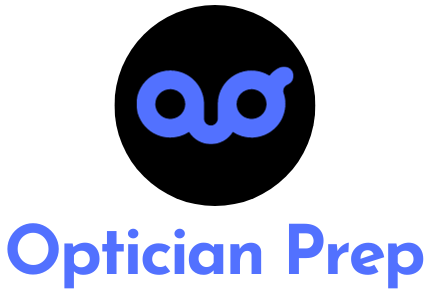Optimize your optician exam prep with proven strategies and tips.
- Tailored Study Guides: Enhance your preparation with resources crafted for the optician exam.
- Effective Study Plans: Learn how to create a study schedule that maximizes your learning potential.
- Practice Exams: Improve with practice tests designed for optician exam success.
Ace your optician exam prep with these insights.
- Understanding the Optician Exam
- Eligibility Criteria for Opticianry Certification
- Registering for the Optician Exam
- Exam Content Breakdown
- Study Materials and Resources
- Developing a Study Plan
- Practical Skills and Hands-On Experience
- Practice Tests and Exam Simulations
- Test Day Strategies
- After the Exam: Understanding Results and Next Steps
- Conclusion: Visualizing Success as an Optician
Understanding the Optician Exam
The journey toward becoming a certified optician necessitates conquering a pivotal milestone: the optician exam. This comprehensive assessment is no trifling matter—it’s the cornerstone for demonstrating your expertise and commitment to the profession. Let’s dissect what this exam entails to lend clarity to your preparatory endeavors.
What’s on the Exam?
The optician exam rigorously tests a swath of knowledge that underpins opticianry. Expect questions that probe deeply into your understandings, such as:
- Prescription Analysis: Do you know how to accurately interpret and fill a prescription for glasses or contact lenses?
- Lensometry: Are you adept at using a lensometer to verify the correct prescription in a pair of glasses?
- Troubleshooting Eyewear Issues: Can you effectively resolve issues related to fit, comfort, and vision with eyewear?
- Materials Knowledge: Do you have a grasp on the broad range of materials and designs available in the marketplace?
Why Is the Exam Important?
This rigorous test serves a dual purpose:
- Verification of Skills: It gives tangible proof that you’ve mastered the essential skills necessary to serve patients effectively.
- Professional Credibility: It bolsters your standing in the community as a skilled professional, opening doors to career advancement.
Diving into the details, a resource like the Optician Certification Exam Outline can offer insight into the structure and breadth of knowledge required to pass.
Eligibility Criteria for Opticianry Certification
Before you can grace the exam room, you’ll need to ascertain your eligibility. Here’s a gist of what’s typically needed:
- Age and Education: You must be 18 or older with a high school degree or equivalent.
- Formal Training: An associate degree in opticianry or substantial experience in a related role is usually necessary.
- Passing Previous Exams: You’re often required to have passed basic certification exams within three years prior to application.
Each state can have nuanced eligibility requirements, like those detailed for becoming an optician in Florida, thus warranting a careful examination of local mandates.
Registering for the Optician Exam
Embarking on the journey of certification requires methodical planning. Here’s how to navigate the registration process:
- Complete an Application Form: Fill out the requisite forms with precision and care.
- Pay the Fees: Submit the necessary charges, keeping in mind deadlines to avoid late surcharges.
- Fulfill Eligibility Prerequisites: Ensure that all criteria are met; whenever in doubt, reach out to the accrediting body.
Await confirmation of a successful application review before booking your seat for the exam. Further information can be found within the Optician’s Certification Application Process.
Exam Content Breakdown
Dedicated optician exam prep calls for a meticulous approach in understanding the labyrinth of topics you’ll be navigating. Here’s what you can expect to encounter:
Optical Theory and Practice
You’ll need to grasp the theoretical underpinnings of optics and apply them practically. Topics include:
- Geometric Optics: Demonstrating knowledge in the laws of reflection and refraction.
- Visual Optics: Understanding how the eye responds to different optical conditions.
- Optical Physics: The interaction of light with lenses and materials.
Instrumentation Mastery
A polished optician should be adept at handling a variety of instruments, including:
- Lensometers: Measuring lens prescriptions with finesse.
- Pupilometers: Accurately determining pupillary distance.
- Autorefractors: Gaining a foundational understanding of automated refraction.
Business and Professional Knowledge
Armed with technical know-how, you should also be versed in:
- Dispensing Procedures: Protocols for fitting, adjusting, and repairing eyewear.
- Regulatory Compliance: Staying abreast of laws and regulations governing opticianry practices.
For a deep dive into the array of topics covered in the Advanced Certification, the ABO Advanced Certification Examination’s detailed overview serves as an indispensable resource.
Study Materials and Resources
Crafting a winning optician exam prep strategy hinges on tapping into a treasure trove of resources. To bolster your study sessions, consider:
- Comprehensive Study Guides: Titles such as “National Opticianry Certification Exam Preparation, Basic Certification,” are brimming with focused material.
- Interactive Courses: Engage with interactive elements such as the Optical Training Institute’s ABO Exam Preparation course package, complete with audios and workbooks.
- Mock Exams: Test your prowess against practice exams that simulate the actual testing environment.
- Workbooks and Collections: The “Workbook for Apprentice Opticians” and its master collection can reinforce your understanding through 1000+ targeted multiple-choice questions.
Infiltrating these materials with a disciplined study regimen can solidify your path to mastering the optician exam.
Developing a Study Plan
Embarking on your optician exam prep necessitates a strategic learning approach. It’s not about how much time you spend studying, but how effectively you use that time. Craft a study schedule that is as precise and personalized as the lenses you will one day fit for your patients.
Set Realistic Goals
Avoid the pitfall of vague ambitions. Define what you want to accomplish each study session with clear objectives.
- Assess Your Strengths and Weaknesses: Begin by identifying the areas in which you excel and those where you need improvement.
- Allocate Time Accordingly: Devote extra study sessions to challenging subjects to ensure those topics are mastered just as well as your strong suits.
Time Management
Your optician exam prep should not overwhelm your life; it should seamlessly integrate into it.
- Consistent Study Blocks: Schedule regular times each day dedicated to studying. This creates a routine that fosters a habit of daily preparation.
- Breaks Are Key: Regular intervals for rest can enhance memory retention and prevent burnout.
Utilize Diverse Resources
Harness the power of various study aids to cater to different learning styles.
- Mix It Up: Combine reading materials with interactive tools, audio lessons, and visual aids.
- Group Study Sessions: Explaining concepts to peers can reinforce your own understanding.
Given the importance of a disciplined plan, consider utilizing a guide such as Test Preparation Strategies, which offers actionable advice for creating an effective roadmap for success.
Practical Skills and Hands-On Experience
While book knowledge is integral, practical experience is invaluable for an aspiring optician. Gaining hands-on skills solidifies theoretical understanding and prepares you for real-life scenarios that you’ll face on the job.
Apprenticeships and Internships
Position yourself in environments that nurture learning through observation and practice.
- Seek Opportunities: Reach out to local optical shops or healthcare facilities for apprenticeship or shadowing opportunities.
- Get Involved: Work alongside seasoned professionals to familiarize yourself with industry practices and equipment firsthand.
Volunteer Work
Charitable events and programs regularly seek volunteer opticians to provide eyecare services to underserved communities.
- Broaden your Experience: Each volunteer opportunity introduces you to a diverse array of cases, sharpening your adaptability and problem-solving skills.
- Make an Impact: Beyond preparing for an exam, you’ll be making a meaningful difference in people’s lives.
Explore ways to enhance your optician exam prep through tactile learning with the support of expert mentors in the field.
Practice Tests and Exam Simulations
Approaching exam preparations with the right mindset entails simulating the test-taking experience. Practice tests are a cornerstone of effective optician exam prep.
Familiarize with the Format
Understanding the layout and type of questions you’ll encounter can greatly reduce test-day anxiety.
- Identify Weak Areas: Pinpoint topics that need more attention so you can tailor your study efforts.
- Build Confidence: The more practice exams you take, the more comfortable you become with the exam’s structure and time constraints.
Implement Feedback
Analyzing your performance on practice exams highlights where you stand.
- Review Mistakes: Understand why certain errors were made to prevent them in the future.
- Track Progress: Monitoring improvements over time can be encouraging and motivational.
The strategic use of practice exams, like those from Optician Now, can provide the repetition necessary to refine your test-taking techniques and boost your performance.
Test Day Strategies
The moment has arrived. All your optician exam prep culminates in this significant day. Facing the exam with calm and confidence is as vital as the knowledge you’ve acquired.
Mental Preparedness
Ground yourself with mental exercises that promote focus and alleviate stress.
- Positive Visualization: Imagine the process of taking the exam confidently and successfully.
- Meditation Techniques: Employ deep breathing exercises to maintain composure and clear focus.
Logistical Readiness
Equally important are the practical aspects that ensure a smooth test-taking experience.
- Plan Your Route: Know how to get to your testing location with contingency plans for unexpected delays.
- Arrive Early: Give yourself ample time to settle and mentally prepare before the exam starts.
Lean on resources like ABO-NCLE Certification Information, which not only outline key details about testing conditions but also provide tips for maintaining optimal physical and mental states during the exam.
After the Exam: Understanding Results and Next Steps
Once the exam is behind you, it can feel like you’re in a state of limbo. Understanding your results and knowing how to proceed is crucial in maintaining the momentum of your professional journey.
Interpret Your Results
Your exam score is more than a number; it’s a reflection of your knowledge and preparation.
- Analytical Approach: Look beyond pass or fail—evaluate areas of strength and aspects that require further development.
- Continue Learning: Regardless of the outcome, identify opportunities for continuous improvement in your craft.
Plan Your Future
Don’t let the exam be the pinnacle of your learning journey.
- Professional Development: Seek out additional certifications or specializations that can enhance your career trajectory.
- Network and Grow: Engage with the optician community to learn from peers and stay updated on industry advancements.
Embrace the post-exam phase as an opportunity for growth, drawing on a broader view of lifelong learning within the opticianry field.
Conclusion: Visualizing Success as an Optician
As you pursue excellence through your optician exam prep, envision the promising future that awaits. Remember, this process is not just about passing an exam. It’s about cultivating a career that’s rich in expertise, ethics, and empathy—a career where you enhance lives through the gift of sight. Your dedication to mastering the material, fine-tuning practical skills, and honing test strategies will pave the way for a successful and fulfilling vocation. Stay committed, stay curious, and let your passion for opticianry illuminate your path to success.

